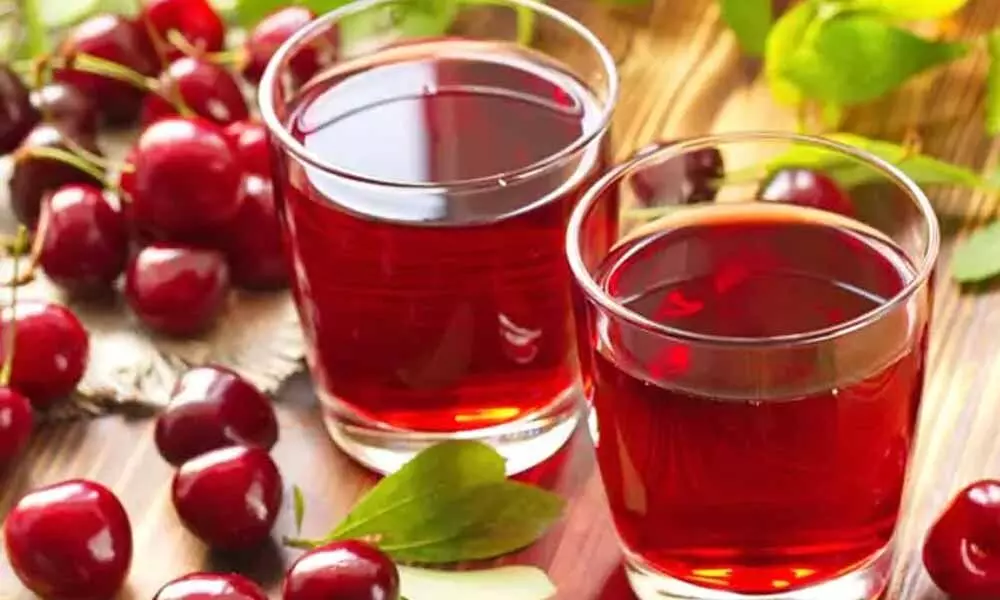Concentrate of Tart Cherry Juice boosts your exercise performance and recovery

Montmorency tart cherry juice has earned a reputation among elite and casual exercisers as a recovery drink
Montmorency tart cherry juice has earned a reputation among elite and casual exercisers as a recovery drink, with research suggesting benefits in minimizing loss of strength and increasing muscle recovery following intensive exercise. Now, a new one-of-a-kind survey. published in the Journal of the American College of Nutrition. Tart cherries found to increase endurance efficiency among study participants.
A new meta-analysis identified at 10 previously published analysis on tart cherries and recovery from exercise. The sample sizes ranged from 8-27 years, and study participants were between 18.6 and 34.6 years. The bulk of the participants were individuals qualified in fitness, including cyclists, runners and triathletes. The 10 research included a total of 127 males and 20 females.
The meta-analysis concluded, after pooling results from the 10 published studies, that tart cherry concentrate in juice or powdered form significantly improved endurance exercise performance when consumed seven days to 1,5 hours before cycling, swimming or running.
The recovery benefits of tart cherry concentrate are well documented, but proof of performance improvement is sparse and findings were mixed, "said co-author Philip Chilibeck, Ph.D., professor at the University of Saskatchewan's College of Kinesiology." Findings from this meta-analysis showed that tart cherries helped boost performance, And we gained more insight into the theoretically responsible mechanism for this advantage.
Methodology of the study
Research teams reviewed existing research on tart cherries and performance in aerobic endurance sports and identified 10 studies that fit the inclusion criteria. To qualify, randomized controlled trials conducted in a healthy adult population were required and a placebo was used as a comparison for supplementing tart cherry (Tart cherry juice, tart cherry concentrate, tart cherry powder and tart cherry powder capsules, among others)
Nine of the 10 tests included long-term consumption of tart cherry (about two to seven days before exercise), and one included supplementation on the same day. Tart cherry dosages ranged from 200 to 500 mg/day in capsule or powder form, from 60 to 90 mL/day tart cherry juice concentrate diluted with 100 to 510 mL water and from 300 to 473 mL / day tart cherry juice. The total daily consumption of anthocyanins ranged from 66 to 2 760 mg.
Measuring performance methods differed throughout the studies, including distance on a shuttle swimming test, time to exhaust during high-intensity cycling, total cycling time trials (10 km, 15 km and 20 km) and time to complete a full or half marathon. To compensate for these variations, researchers calculated standardized mean differences and confidence intervals of 95 per cent to determine changes in results.
Results
Combined findings across these 10 studies showed a significant increase in tart cherry concentrate endurance performance, with two of the 10 studies recording significant performance-enhancing effects alone. Although pooled meta-analytical results found significant benefits, 8 of the 10 recovery studies showed no performance benefit when tart cherry was compared with placebo. This could be related to demographics and fitness levels of the participants, diet and exercise control, protocol supplementation and performance measurements. Not all tests used well-trained athletes, and the meta-analysis found the smallest change when the lowest trained participants drank tart cherry juice. There was no dose-response relationship between tart cherry concentrate and results, and further studies are justified in finding an optimal dosing strategy.
Almost all the cherries and recovery or performance experiments were performed with Montmorency tart cherries, the most popular variety of tart cherries grown in the United States. Such homegrown tart cherries are available year-round in concentrated forms of dried, frozen, canned, milk, and water. Other tart cherries varieties may be imported, and not grown locally.
Reference: "Effect of tart cherry concentrate on endurance exercise performance: a meta-analysis" by Ruirui Gao and Philip D. Chilibeck, 27 January 2020, Journal of the American College of Nutrition.








